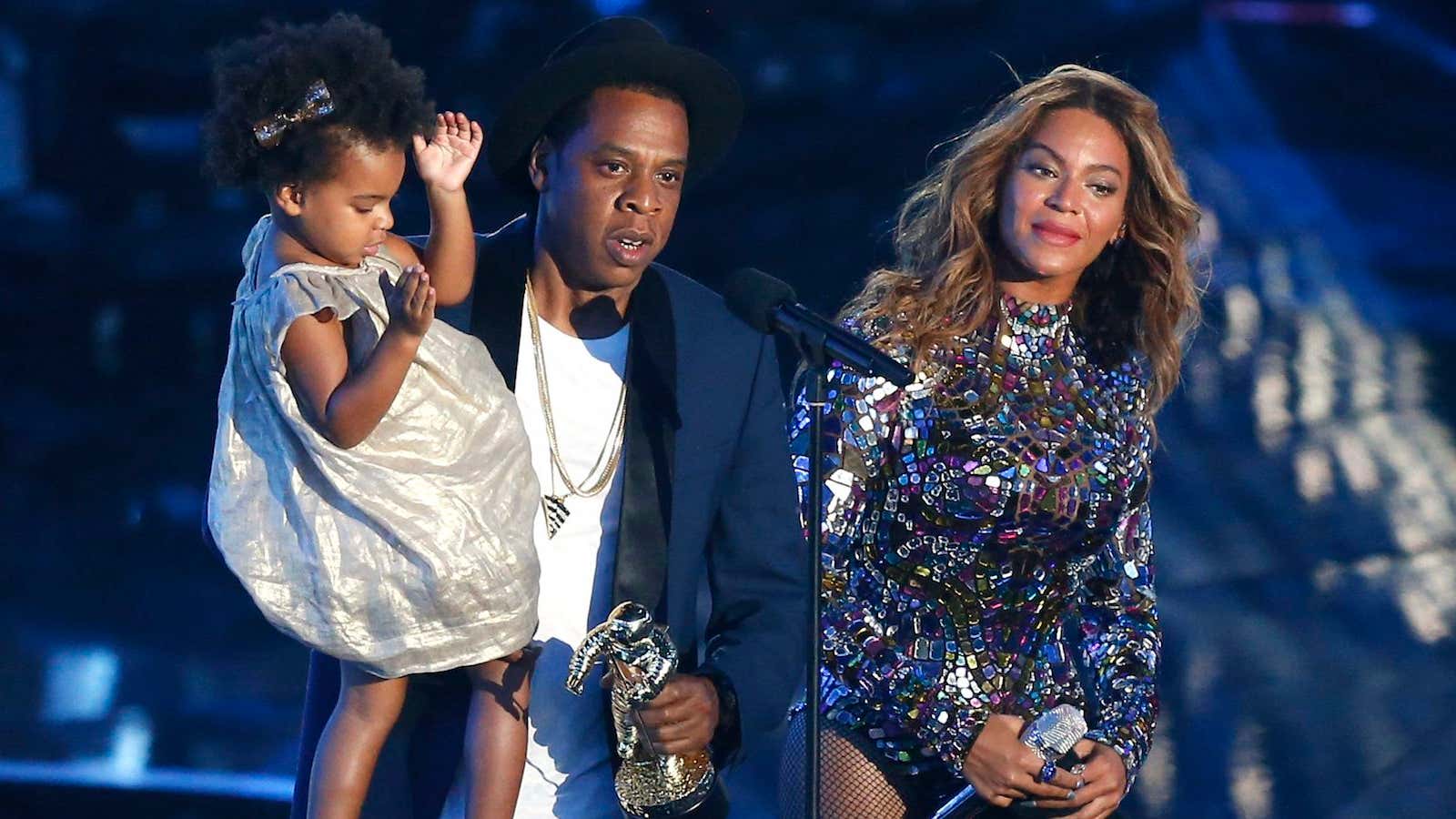Beyoncé has released a new song as a seven-year anniversary present to her husband, Jay Z, on his new music streaming service Tidal. Beyoncé and a bunch of other artists have a stake in the service, and plan to use it to offer exclusive content—such as this new track, “Die With You,” which came with a music video.
The problem is, the track is already everywhere. The song has been ripped from Tidal and placed on different music sites. Here is the video, for example:
Sure, the YouTube clip above may be taken down by the time you read this. But the problem remains that nothing is exclusive once it hits the internet.
Indeed, after piracy started decimating the music industry, many artists decided to concentrate on making their income from touring, in recognition that the money from music was never going to be what it was in the pre-Napster era. What Jay Z and his fellow artists are trying to do is put the genie back in the bottle—and that isn’t going to happen.
Why should anyone pay for Tidal—and a premium at that, for higher-quality audio—when the content likely will be available elsewhere in minutes? Hollywood is facing the same problem with Popcorn Time, the “Netflix for piracy,” which makes it easier than ever to see high-quality movies on different devices, without having to wait for the arbitrary release schedules for digital downloads and physical formats, which inexplicably vary by country.
No wonder, then, that HBO will air Game of Thrones at the exact same time around the world to combat piracy, while many music artists are using the element of surprise to bring an audience to the album format. All media are trying to fight a battle against content being devalued. But these are short-term solutions to a long-term problem: How to make people pay for content that they can get for free?
After all, if people won’t pay for Beyoncé, what will they pay for?




